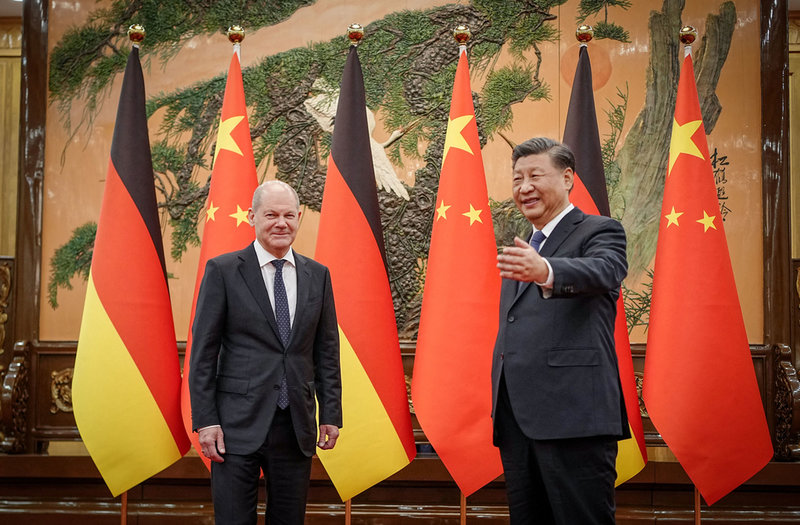Ports
China continues to move into global ports
Cosco Shipping Ports Limited is aiming to build a global terminal network through controlling stakes. Jasleen Mann explores the matter.
In October this year, Cosco Shipping Ports Limited (CSPL) confirmed the acquisition of shares valued at just less than 25% in the Container Terminal Tollerort (CTT) at the Port of Hamburg, Germany. The company originally expected to gain a 35% stake, but the federal government decided on 24.9%.
CTTis an important logistics hub with a good location, water depth, efficient operations, and management capabilities.
Container terminal operator Hamburger Hafen und Logistik AG (HHLA) first collaborated with China on business opportunities 40 years ago with the first vessel from China to arrive at CTT Terminal in 1982.
COSCO expands overseas interests
“Neither the CTT nor the HHLA nor the Port of Hamburg will be sold to China. HHLA remains an independent, listed company with the Free and Hanseatic City of Hamburg as the most important owner,” says HHLA CEO Angela Titzrath.
“With the entry of CSPL, the CTT will become a preferred hub for Asia traffic. HHLA retains sole control over all key decisions. Cosco does not receive any exclusivity rights at the CTT – the terminal remains open for container volumes from all customers. CSPL also has no access to strategic know-how, IT, and sales data remain the sole responsibility of HHLA. German law continues to apply in all matters.”
CSPL also has no access to strategic know-how, IT, and sales data remain the sole responsibility of HHLA
CSPL expects CTT to bring stable earnings and provide high-quality services for customers.
COSCO Shipping Ports’ portfolio covers the five main port regions in Mainland China, Southeast Asia, the Middle East, Europe, South America, and the Mediterranean.
COSCO SHIPPING Ports’ overseas portfolio currently includes Piraeus Terminal (Greece), CSP Abu Dhabi Terminal (UAE), CSP Chancay Terminal (Peru), Suez Canal Terminal (Egypt), Kumport Terminal (Turkey), COSCO-PSA Terminal (Singapore), Busan Terminal (South Korea), Seattle Terminal (US), Euromax Terminal (Netherlands), and Red Sea Gateway Terminal (Saudi Arabia).
In addition, 20 years ago China loaned Sri Lanka over $1bn to build the Hambantota port. However, in 2017 China took ownership of the entire port on a 99-year lease following Sri Lanka’s inability to pay its debts.
Worries over China’s influence
Concerns have been expressed about China’s influence in relation to significant port infrastructure and the country’s latest acquisitions.
“The cooperation between HHLA and Cosco does not create any one-sided dependencies. On the contrary: it strengthens supply chains, secures jobs, and promotes value creation in Germany. Smoothly functioning logistics is a basic requirement for global trade flows and prosperity,” says Titzrath.
“Progress and security can only exist on the basis of cooperation, common goals, and interests. The cooperation between the two partners also strengthens the position of the Free and Hanseatic City of Hamburg as a logistics hub in the North and Baltic Sea regions and of the Federal Republic of Germany as an export nation.”
It has been suggested that the extent of China’s influence over the flow of goods could cause issues for nations in the future.

Chinese President Xi Jinping (R) welcomes German Chancellor Olaf Scholz at the Great Hall of the People in Beijing, China on 4 November 4 2022. Credit: Kay Nietfeld/pool/AFP/Getty Images
Sir Malcolm Rifkind QC, former UK Secretary of State for Foreign, Commonwealth and Development Affairs, speaking before the UK Foreign Affairs committee on 15 November, said: “The main controversy with the German Chancellor’s visit to China was not the fact that he was going there and having dialogue on trade or economics.
“It was a specific question of the Hamburg port and the fact that the Chinese state-owned company was going to be given what turned out to be 25% ownership of an important port. That is a legitimate issue, not just for Germany but it would equally apply in the case of the UK or any other European country.”
Some believe that the recent developments are being politicised beyond what is necessary and that the concerns are based on assumptions regarding China’s intentions.